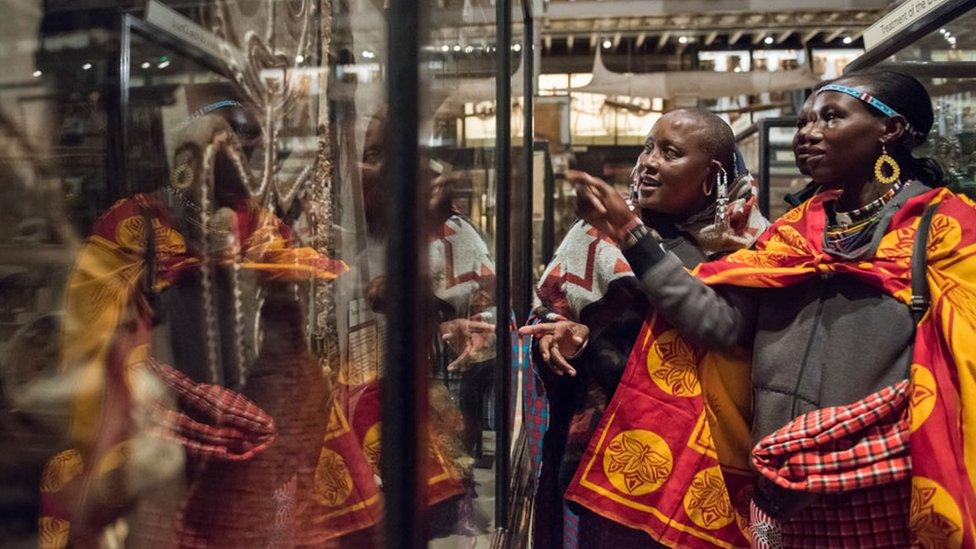Museum will keep Maasai objects following visit
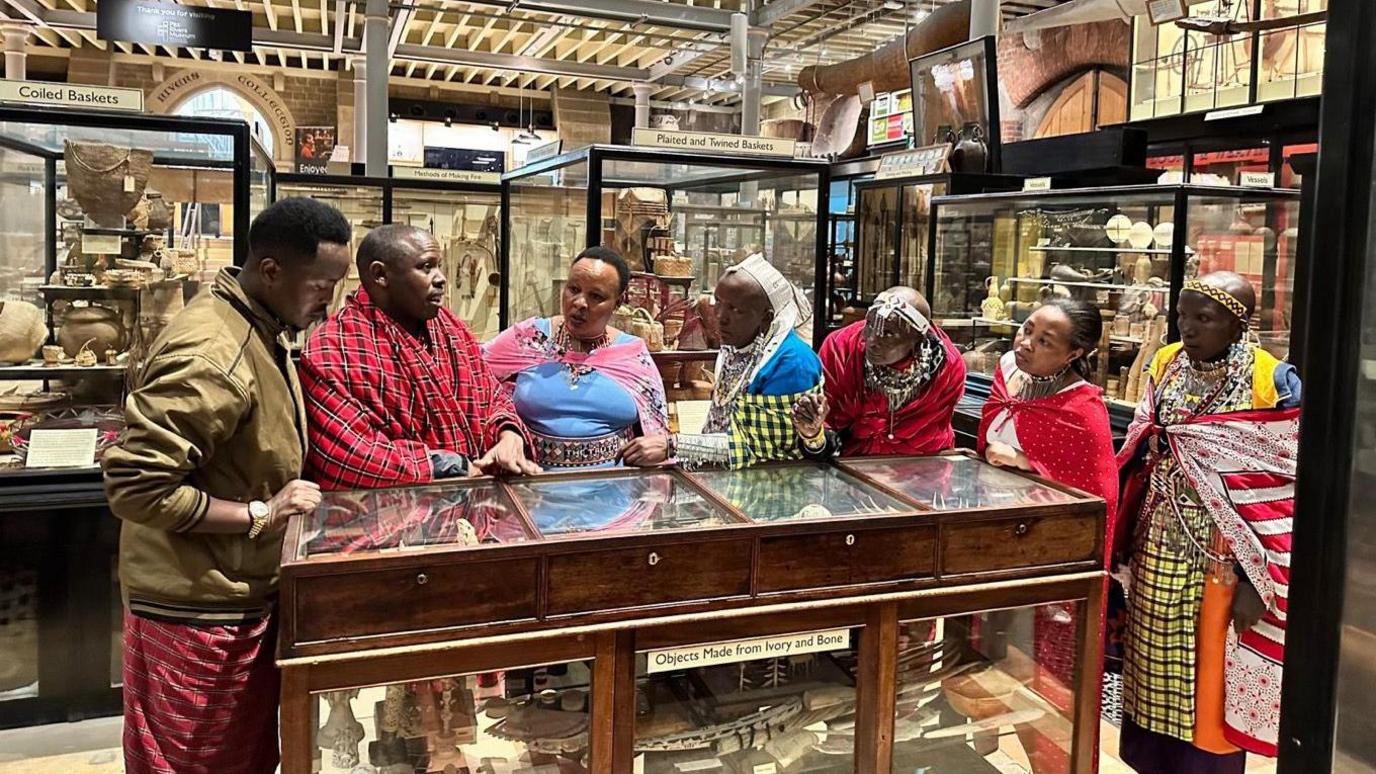
There are 213 Maasai objects in the Pitt Rivers collection
- Published
Artefacts originating from the Maasai people will remain part of a museum's collection following meetings with the group.
The Pitt Rivers Museum, in Oxford, has 188 Maasai objects from Kenya and Tanzania in its collection of 660,000 artefacts.
Ten delegates visited the museum as part of a project aimed at improving relations with indigenous peoples whose material features in the collection.
Ruth Sintamei Tuleto, from the Pan African Living Cultures Alliance, said the objective of the visit was to "make the world co-exist".
As part of the visit, the Maasai and the museum decided that the items should remain part of the collection, with work done to ensure the story behind them is made clear to everyone.
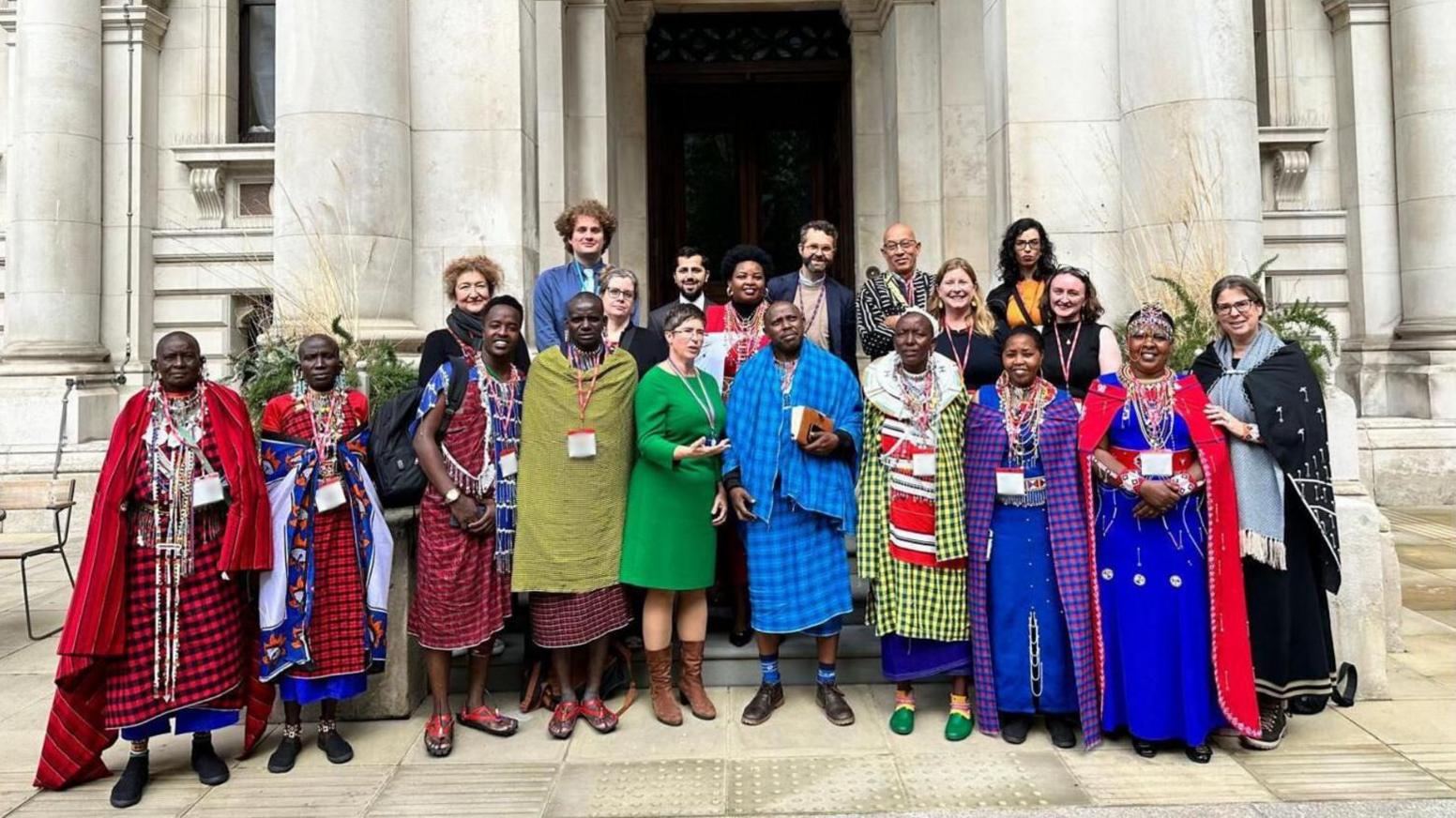
The group helped explain the meaning behind some of the objects at the museum
"The Maasai and the museum would like to co-exist for other communities to emulate what we have done - we are talking about peace and reconciliation," Ms Tuleto told the BBC.
"We do not want to disconnect our relationship with the museum - we want to continue our relationship to make the world a better place."
Maasai people live in southern Kenya and northern Tanzania and are classed as pastoral nomads, or travelling animal herders.
The delegation explained the meaning of different objects during their visit.
Among the items held by the Pitt Rivers is an 120-year-old head ornament, called an Isikira, that had originally belonged to the family of Nolllmesegel Ene Sulul, who visited as part of the Maasai delegation.
The object can traditionally only be used by one specific person, and would always be dismantled after use.
Ms Sulul said seeing the item, which should never have been borrowed, sold or given away, left her "shocked".
"I was feeling upset, there was a feeling of headache, my veins were beating like this and I could not really speak and I cried," she said.
She added that being involved in the project "feels like justice".
Get in touch
Do you have a story BBC Oxfordshire should cover?
You can follow BBC Oxfordshire on Facebook, external, X (Twitter), external, or Instagram, external.
- Published30 July 2022
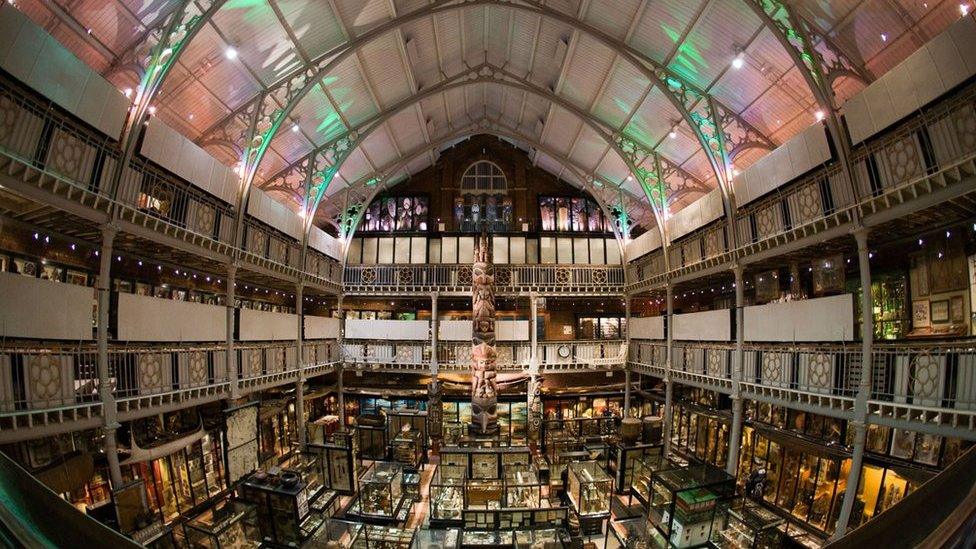
- Published14 September 2020
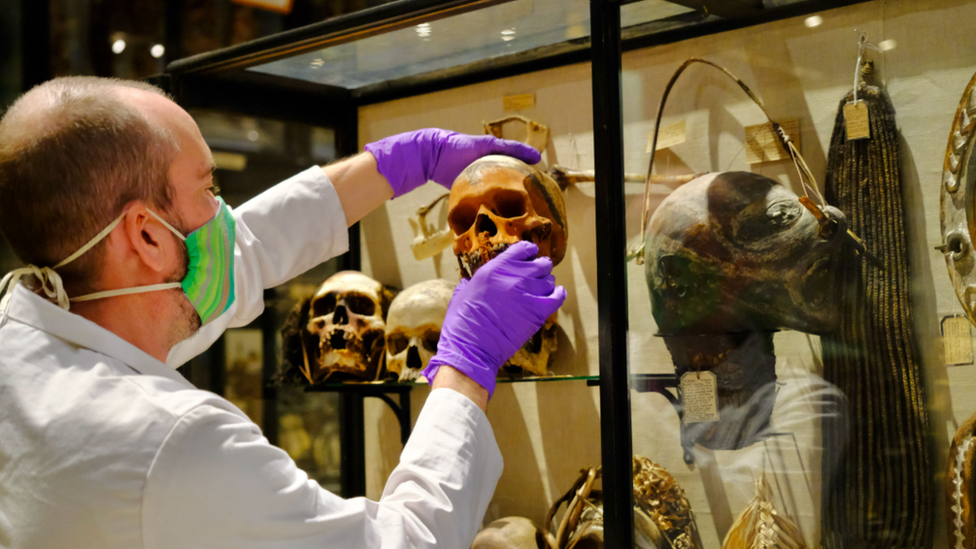
- Published29 January 2019
